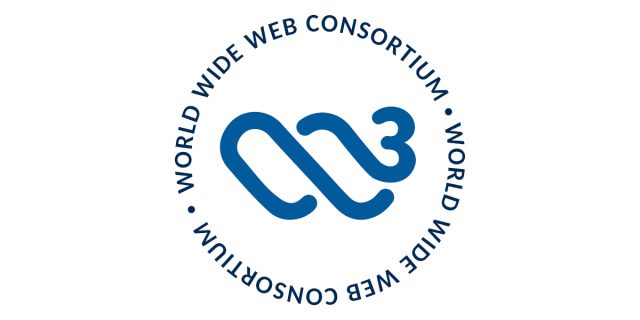Just applied for renewal of my GNOME Foundation membership. And realized it's been 10 years since I became a foundation member!
Time flies when having fun! 😎🔟
#GNOME #gnomefoundation #10years #Anniversary #foss #freedesktop
Just applied for renewal of my GNOME Foundation membership. And realized it's been 10 years since I became a foundation member!
Time flies when having fun! 😎🔟
#GNOME #gnomefoundation #10years #Anniversary #foss #freedesktop
Contribute to NLnetLabs/.github development by creating an account on GitHub.GitHub
Happy 7th anniversary of becoming an official W3C standard, ActivityPub!
w3.org/news/2018/activitypub-i…
We're creating something truly special here with the fediverse, and I am so thankful for everyone who contributes to it, whether with your time, money, or just by sharing your thoughts, your creations, your silly little jokes. Keep it up!
#fediverse #activitypub #standards #OpenWeb #anniversary

The World Wide Web Consortium (W3C) is an international community where Member organizations, a full-time staff, and the public work together to develop Web standards.W3C
On this day (or near it) in 2015, I joined the Mozilla project by starting work as a full-time employee of Mozilla Corporation. I’m two hardware refreshes in (I was bad for doing them on time, leaving my 2017 refresh until 2018 and my 2020 refresh until 2022! (though, admittedly, the 2020 refresh was actually pushed to the end of 2021 by a policy change in early 2020 moving from 2-year to 3-year refreshes)) and facing a third in February. Organizationally, I’m three CEOs and sixty reorgs in.
I’m still working on Data, same as last year. And I’m still trying to move Firefox Desktop to use solely Glean for its data collection system. Some of my predictions from last year’s moziversary post came true: I continued working on client code in Firefox Desktop, I hardly blogged at all, we continue to support collections in all of Legacy Telemetry’s systems (though we’ve excitingly just removed some big APIs), Glean has continued to gain ground in Firefox Desktop (we’re up to 4134 metrics at time of writing), and “FOG Migration” has continued to not happen (I suppose it was one missed prediction that top-down guidance would change — it hasn’t, but interpretations of it sure have), and I’m publishing this moziversary blog post a little ahead of my moziversary instead of after it.
My biggest missed prediction was “We will quietly stop talking about AI so much, in the same way most firms have stopped talking about Web3 this year”. Mozilla, both Corporation and Foundation, seem unable to stop talking about AI (a phrase here meaning “large generative models built on extractive data mining which use chatbot UI”). Which, I mean, fair: it’s consuming basically all the oxygen and money in the industry at the moment. We have to have a position on it, and it’s appropriating “Open” language that Mozilla has a vested interest in protecting (though you’d be excused for forgetting that given how little we’ve tried to work with the FSF and assorted other orgs trying to shepherd the ideas and values of Open Source in the recent past). But we’ve for some reason been building products around these chatbots without interrogating whether that’s a good thing.
And you’d think with all our worry about what a definition of Open Source might mean, we’d make certain to only release products that are Open Source. But no.
I understand why we’re diving into products and trying to release innovative things in product shape… but Mozilla is famously terrible at building products. We’re okay at building services (I’m a fan of both Monitor and Relay). But where we seem to truly excel is in building platforms and infrastructure.
We build Firefox, the only independent browser, a train that runs on the rails of the Web. We build Common Voice, a community and platform for getting underserved languages (where which languages are used is determined by the community) the support they need. We built Rust, a memory-safe systems language that is now succeeding without Mozilla’s help. We built Hubs, a platform for bringing people together in virtual space with nothing but a web browser.
We’re just so much better at platforms and infrastructure. Why we don’t lean more into that, I don’t know.
Well, I _do_ know. Or I can guess. Our golden goose might be cooked.
How can Mozilla make money if our search deal becomes illegal? Maintaining a browser is expensive. Hosting services is expensive. Keeping the tech giants on their toes and compelling them to be better is expensive. We need money, and we’ve learned that there is no world where donations will be enough to fund even just the necessary work let alone any innovations we might try.
How do you monetize a platform? How do you monetize infrastructure?
Governments do it through taxation and funding. But Mozilla Corporation isn’t a government agency. It’s a conventional Silicon Valley private capital corporation (its relationship to Mozilla Foundation is unconventional, true, but I argue that’s irrelevant to how MoCo organizes itself these days). And the only process by which Silicon Valley seems to understand how to extract money to pay off their venture capitalists is products and consumers.
Now, Mozilla Corporation doesn’t have venture capital. You can read in the State of Mozilla that we operate at a profit each and every year with net assets valued at over a billion USD. But the environment in which MoCo operates — the place from which we hire our C-Suite, the place where the people writing the checks live — is saturated in venture capital and the ways of thinking it encourages.
This means Mozilla Corporation acts like its Bay Area peers, even though it’s special. Even though it doesn’t have to.
This means it does layoffs even when it doesn’t need to. Even when there’s no shareholders or fund managers to impress.
This means it increasingly speaks in terms of products and customers instead of projects and users.
This means it quickly loses sight of anything specifically Mozilla-ish about Mozilla (like the community that underpins specific systems crucial to us continuing to exist (support and l10n for two examples) as well as the general systems of word-of-mouth and keeping Mozilla and Firefox relevant enough that tech press keep writing about us and grandpas keep installing us) because it doesn’t fit the patterns of thought that developed while directing leveraged capital.
(( Which I don’t like, if my tone isn’t coming across clearly enough for you to have guessed. ))
Okay, that’s more than enough editorial for a Moziversary post. Let’s get to the predictions for the next year:
Let’s see how it goes! Til next time.
:chutten
chuttenblog.wordpress.com/2024…
#anniversary #mozilla #thisWouldBeThePotteryOrCopperAnniversaryIfThisWasAMarriage #work #yearOfGleanOnTheDesktop

At the end of my post for my seven-year moziversary, I made some predictions about what was to be and now has been the next year of work. And I got them pretty spot-on: Predictions for the next yea…chuttenblog
Happy Birthday to us 🎂🎉! KDE is 28 years old today!
Join us and hold a KDE birthday party in your city. Fill in the wiki, meet up with your friends and celebrate 28 years of collaboration, free software and altruism!
It's a momentous occasion. On July 25th, 2023, AccessibleAndroid.com proudly emerged as a fully independent international English website. This journeyEditorial Staff (Accessible Android)